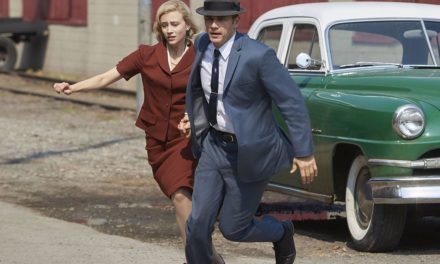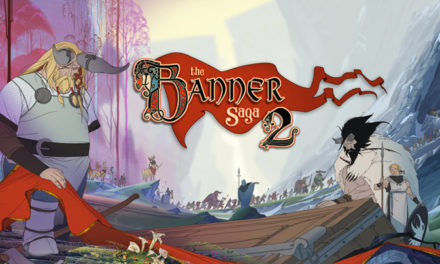Star Rating: 4 out of 5
If you are married or in a relationship, chances are pretty good you are familiar with the romantic comedy. Gentlemen, if your significant other insists that she does not watch romantic comedies, she’s likely lying to you. At some point in your future, you will watch one of these. This might raise the question then, why am I reviewing About Time? The truth of the matter is that it was I who picked this movie to watch and not my wife. Shocking, I know. After reflecting on the movie for a few days, it struck me how brilliant the movie was and how it has taken the third spot on my list of favorite time travel movies.
I actually saw this movie when it first came to Redbox, however long ago that was, with my mother and sister and my grandparents (my dad might have been there, further proving my above point, but since he rarely watches movies with us I have a difficult time remembering the times he is with us). I enjoyed it after my first viewing. It had a neat plot device that gave this cheesy romance movie more meat than your average romantic comedy/drama.
About Time follows the protagonist Tim, as he navigates life on his own after moving out of his parents house and tries to find his significant other. Even though that sounds similar to about 80% of the other romantic movies, what makes this one unique is Tim can travel through time. Early in the movie, Tim’s father tells him the family secret that all men in the family can travel through time as long as it is within his own timeline. For example, Tim cannot travel through time to kill Hitler because Tim was not alive when Hitler was alive. This newfound secret only adds another level of difficulty to Tim’s life. As Tim makes and remakes decisions and relives his daily scenarios not only does Tim learn what he can and cannot change, but the audience is oriented with the laws of time travel that the movie creates.
No movie is perfect in its depiction of time travel. The Terminator saga is riddled with paradoxes and plot holes (I haven’t seen Genisys yet to know whether it fixes any issues or not). Primer makes the concept so complicated you either assume the writers and directors were morons or so brilliant that it was probably a documentary instead of a work of fiction. Yes, even Back to the Future has its flaws (the discovery of which pretty much ruined my life, but thats another post for another time). I felt that because About Time took a unique approach to time travel, and created some pretty unconventional rules for itself, it really was a breath of fresh air in comparison to the above mentioned movies. Since Tim can only travel to points in his own past, it eliminates a lot of the possibilities of causing some huge change in his life. He can’t, for example, go back in time and make his mother fall in love with him, thus making him and his sister disappear. We also learn later in the movie (spoiler alert) that he cannot go back before the births of any of his children and change anything; the result of which could potentially change the gender of his child.
Within the narrative, there are three major relationships that are focused on, Tim and Mary, Tim and his sister, Kit-Kat, and Tim and his dad. Throughout the story, Tim uses his gifts in order to do things to better his relationship with the lives of those he loves. There are instant sparks when Tim meets Mary for the first time, but this entire first encounter is undone when he chooses to go back and help his roommate with his play. Tim then begins an awkward series of events in order to find Mary and re-meet her and woo her to the point they had reached originally. After Tim wins Mary’s heart all over again, the focus of his gift then becomes his sister, Kit-Kat, who is in a terrible relationship and an alcoholic. Tim tries to use his gift to rework her life to prevent something disastrous from happening. After going back to the beginning and changing Kit-Kat’s life, Tim returns to find that his entire life has changed (he went past the birth of his child). It is at this point of the story where Tim learns the most important lesson about his gift; he cannot change other people’s lives for them, they need to be the ones to make their own decision to change. Even though Tim’s relationship with his dad is a focal point in the movie, it is in the last bit of the movie that Tim uses his gift to better his relationship with his dad. Throughout the entire movie, Tim’s dad is the voice of reason and teaches Tim the lessons he learned about the family gift.
In case you are unable to pick up on the core theme of the movie, have no fear; Tim explains everything in the end. After having his gift for his entire adult life, Tim learns to live everyday to its fullest. In his words, “Live every day as if [he] had gone back to live it again.” While this message/theme is pretty cliche, I think About Time presents it with a new and unique concept. The other lesson that Tim learns, which I’d argue is another theme, is that you can’t change those around you: only yourself. After watching the movie, my wife tried to convince me that it wasn’t a very good movie from a story standpoint because there wasn’t much character development outside of Tim. I agree that there wasn’t much character development outside of Tim, but I disagree that it wasn’t good from a story perspective. Because one of the themes of the movie is Tim’s inability to change other people for themselves, it was necessary that none of the other characters change very much. The only other character who changes apart from Tim is Kit-Kat. In our day to day lives, we are surrounded by people who reflect “static” characters in stories. The only time people change from static individuals to dynamic individuals in our lives are when we take the time to get to know them on a personal level. Apart from that, everyone around us are just reflections of stereotypes in our lives. We watch Tim change because he’s our narrator. As he learns that he cannot change those around him, only his thoughts and attitude, we too learn that we cannot change those around us, only our thoughts and attitudes.





